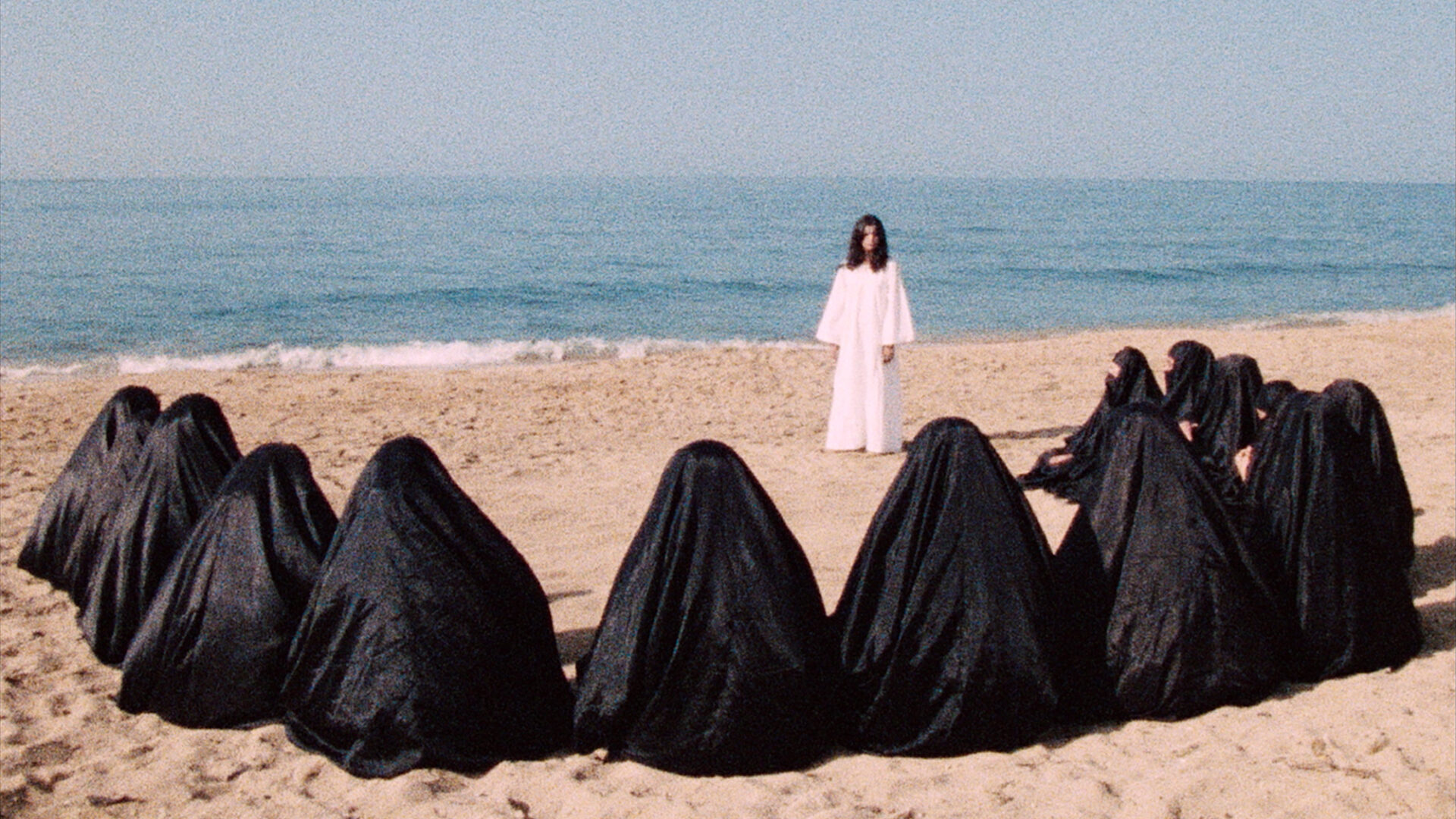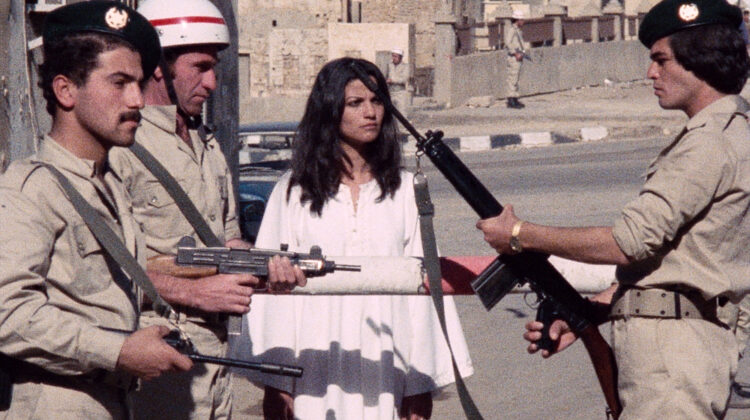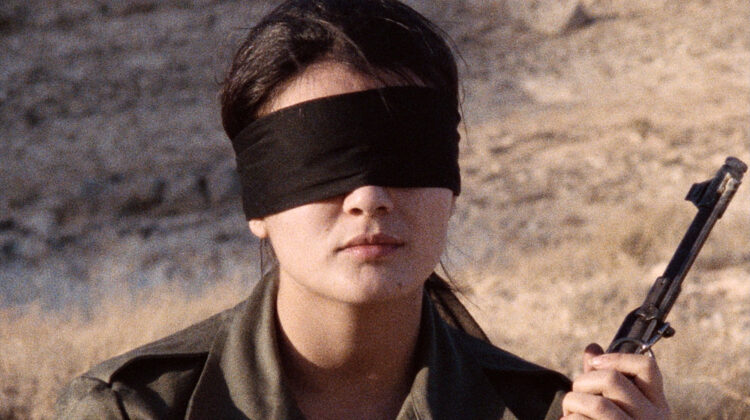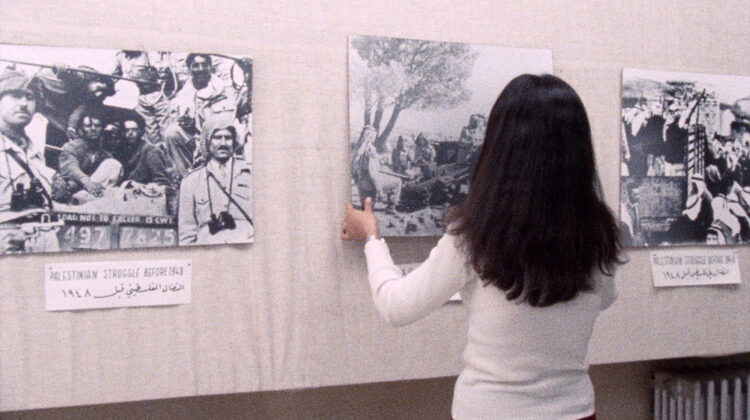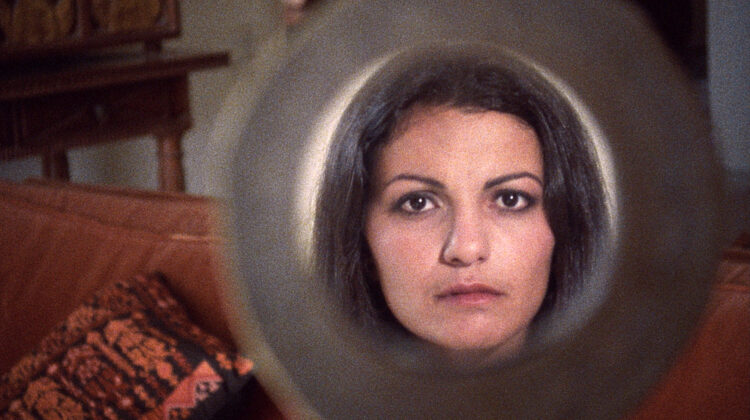- Leila and the Wolves
- ليلى والذئاب
-
United Kingdom/
France/ 1984Belgium/ Netherlands/ Lebanon/ Sweden - Heiny Srour
- 95 DCP
- PG
Screening Dates
- April 11, 2025 6:30
- April 13, 2025 8:30
- April 26, 2025 6:30
“A film which questions the gospel of the gun; its images flowing in search of woman’s political and historical identity in the Middle East … Leila is not an anthropological journey but a survey of mythic and symbolic protest.”
John Akomfrah, filmmaker and visual artist
“This film is based on actual events which are part of the collective memory of the Lebanese and Palestinian people.” Thus announces Lebanese writer-director Heiny Srour’s sole foray into non-documentary, a paean to the lineage of Arab women who took up arms in the struggle for Palestinian liberation. The eponymous Leila (Nabila Zeitouni) is the film’s fulcrum and narrator, a London-based Lebanese woman contributing to an exhibition on occupied Palestine. When a male colleague attributes the absence of women in the show to a lack of their political involvement, Leila defiantly portals through a 20th-century chronology of the region, each stop revealing a resistance movement shored up by a network of female insurgents. Srour, whose groundbreaking 1974 documentary The Hour of Liberation Has Arrived was the first film by an Arab woman in competition at Cannes, braids together reenactment, archival footage, mythology, and song to fashion a striking corrective to the “official”—i.e. patriarchal—history of anti-colonial unrest.
In Arabic and English with English subtitles
“A visionary journey through female protest and defiance … A landmark film.”
Elhum Shakerifar, BFI
Community Partner

